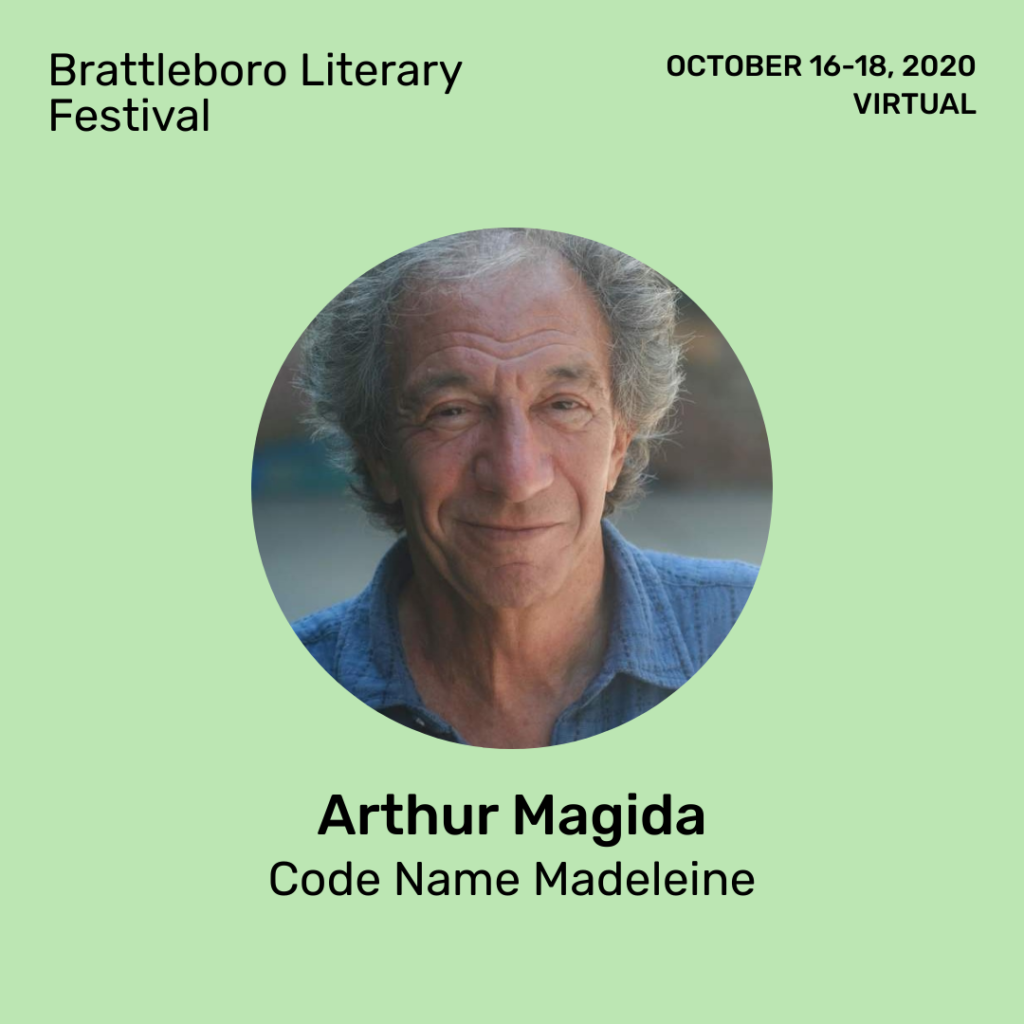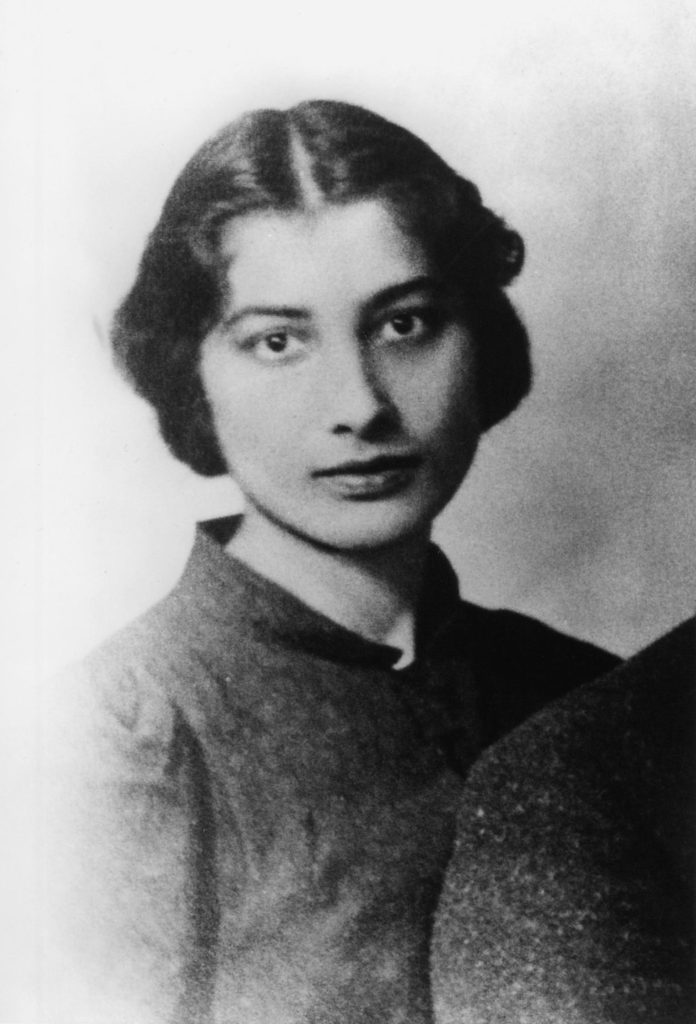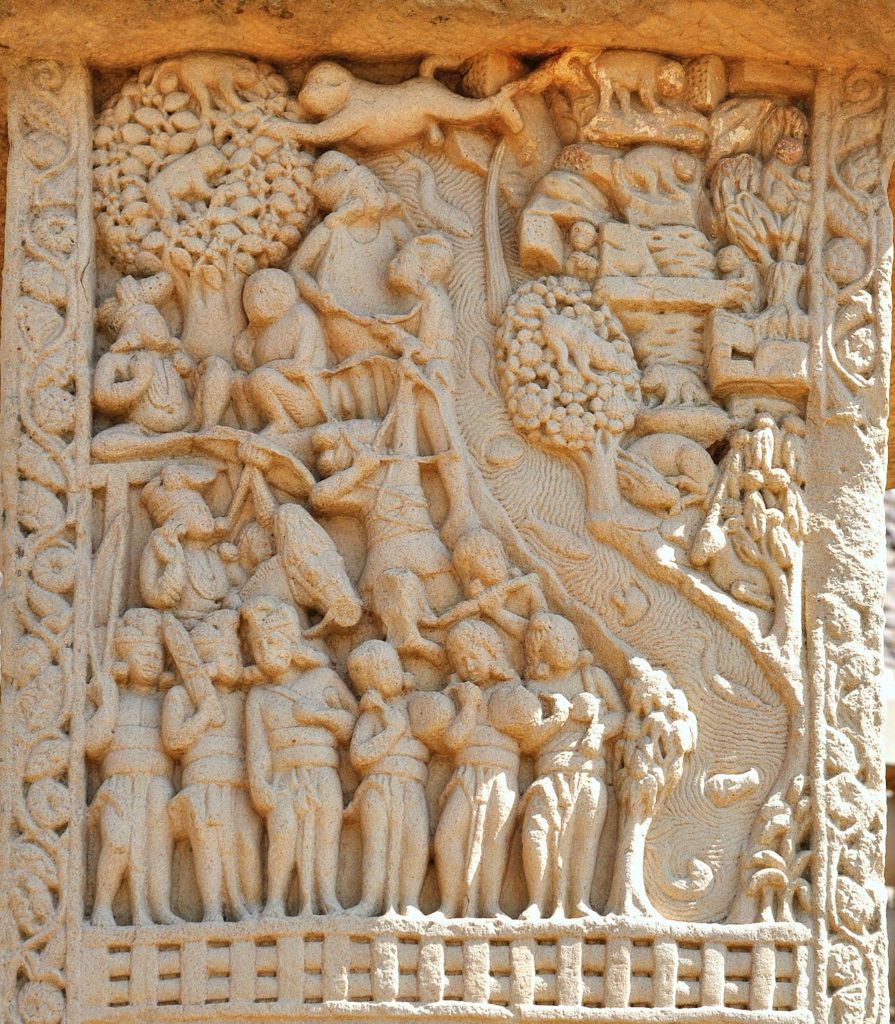 n his fascinating book, Arthur J. Magida presents the story of Noor Inayat Khan against the backdrop of WW II. I had the pleasure of attending (via Zoom) the presentation of his biography of Noor at the American Library of Paris. Magida credits what he calls, “the splendid PBS documentary”Enemy of the Reich, for his first gripping introduction to Noor. He kindly agreed to send along this column to commemorate the anniversary of Noor’s death.
n his fascinating book, Arthur J. Magida presents the story of Noor Inayat Khan against the backdrop of WW II. I had the pleasure of attending (via Zoom) the presentation of his biography of Noor at the American Library of Paris. Magida credits what he calls, “the splendid PBS documentary”Enemy of the Reich, for his first gripping introduction to Noor. He kindly agreed to send along this column to commemorate the anniversary of Noor’s death.

BIOGRAPHY OF ARTHUR J. MAGIDA
Arthur J. Magida’s biography of Noor Inayat Khan, Code Name Madeleine: A Sufi Spy in Nazi-Occupied Paris, has been nominated for a Pulitzer and optioned for a film. His other books include The Nazi Séance, The Rabbi and The Hit Man and Prophet of Rage. He has been senior editor of the Baltimore Jewish Times, a professor at Georgetown University and the University of Baltimore, a contributing correspondent to PBS’s Religion & Ethics Newsweekly, environmental reporter for National Journal, a writer/editor for Ralph Nader, and a consultant to the Holocaust Museum in Washington.
ARTHUR MAGIDA’S GUEST COLUMN
“Seventy years after the end of World War Two, you’d think there would be nothing new to learn about that conflict. But there is. There always is.
“And untold millennia since the origin of our species, you’d think there would be nothing new to learn about human nature, human courage, human faith. But there is. There always is.
HUMAN FAITH
“By human faith, I don’t mean faith in a higher being, as ‘faith’ is most often used. But faith that we are better than our circumstances, that we can bring light to a world which has become dark and dim and collapsed almost inconsolably upon itself.

NOOR’S BACKGROUND
“A young Muslim woman, Noor Inayat Khan, who spied for the British in occupied France, embodied that faith during the war. Small, humble and non-violent by nature and upbringing, Noor fought the Nazis with a tenacity that surprised her handlers in Britain’s top-secret Special Operations Executive, and stunned the Germans who eventually caught her. Noor did not acquire these qualities haphazardly. Her father, Hazrat Inayat Khan — one of the most revered Sufi masters of his day, taught, ‘The essence of mysticism is readiness to serve the person next to us.’ Noor’s great-great-great-great grandfather – Tipu Sultan, a ruler in India in the 18th century — resisted British colonialism and is still a hero to many Indians and Pakistanis. In Noor commingled royal blood, harsh military campaigns, and a highly focused, highly worldly Sufism. Noor was raised to brighten the world, to illuminate it, which possibly is why her full name is Noor-un-nisa – ‘light among women.’
“Unlike many mystics, Noor was not oriented to escape the world. She served it through ‘chivalry’ – a word and a concept endemic to Chisti Sufis. Even while holding the Gestapo at bay in Paris in 1943, Noor never strayed from the demanding ethics of chivalry: ‘Bear no malice against your worst enemy.’ ‘Do not neglect those who depend upon you.’ ‘Do not spare yourself in the work which you must accomplish.’ In Paris, Noor served selflessly and without ego. In that sense, she was the ideal Sufi: one who takes no credit for the repair they offer our wounded world.
IF AN ARMED NAZI …
“Living opposite Paris as the war broke out, Noor and her brother, Vilayat, passionately discussed the choice that lay ahead of them: Noor’s enchantment with Gandhi’s satyagraha or joining the fight against fascism. Vilayat told Noor, ‘If an armed Nazi comes to our house and takes twenty hostages and wants to exterminate them, would you not be an accomplice if you had the opportunity to kill him (and thereby prevent these deaths), but did not because of your belief in non-violence? How can we teach spiritual morality without participating in preventive action? Can we stand by and just watch what the Nazis are doing?’”
RADIO OPERATOR
“Noor couldn’t stand by. After boarding one of the last ships to England, Noor served in the SOE – charged by Churchill with ‘setting Europe ablaze’ through espionage, sabotage, reconnaissance and aiding the resistance. In June 1943, she was flown into France as a radio operator. Within a week, she was London’s only link with the resistance when the Nazis caught the rest of her cell. Spurning numerous opportunities to escape to safety, Noor remained in France, saving countless lives and laying the groundwork for D-Day, still a year away. When the Nazis caught her in October, she was interrogated extensively, and futilely; tried to escape twice; and was sent to a prison in Germany where she was kept in chains and solitary for ten months. Taken to Dachau, she was executed on September 12 or 13, 1944. (The dates of Noor’s murder differ because the four accounts of her execution differ on precisely when it occurred.) To the end, she never gave the Germans any information – the sole member of her cell who did not crack while in Nazi hands.
“Much of Noor’s fortitude stemmed from what she had learned from her father, the Sufi master. A spiritual person, he wrote, ‘only wants to live in this world for the sake of others, not for himself; to serve them, not ask for their service; to love them, not ask for love. To bear all things that come to him. To look into the eyes of all, brave in spirit and strengthened in truth. In this way, the angel-[wo]man comes to the rescue of humanity.’

JATAKA TALES
“On this, the 77th anniversary of Noor’s murder, let us remember this woman of valor, especially as certain Islamic lunatics distort the words of their Prophet and exhaust the patience of their God. Noor was faithful to her faith. They are not. Noor is also memorable because, it seems, she always knew her fate, and she did not spurn it. Her adaptation of Buddhist stories about various incarnations of the Buddha was published in 1939. One story concerns a giant monkey who uses his body as a bridge to allow others to escape from a trap. All the monkeys escape though their king is fatally injured in the process. As he is dying, the human king tending to him asks, ‘You made your body a bridge for others to cross. Did you not know that your life would come to an end in so doing?’ The monkey king answers, ‘I do not suffer for I have gained my subjects’ freedom. And if my death may be a lesson to you, then I am more than happy.’ Power, the monkey advised, does not make a sovereign. A true king has only two cares: loving his people and securing their happiness.
“Noor could have been writing about herself. Even if she wasn’t, she was certainly writing about a way of life that is noble, enriching and inspiring.”
Code Name Madeleine is available through Bookshop and amazon.